Space law in the UK – Does it apply to you?
Like in Australia, the British Government has been proactive in finding ways to facilitate the growth of the domestic space industry. Many legislative changes have been introduced to modernise the British space law regime, promote greater compliance with international obligations, and attract additional commercial interest.
Space Industry Act 2018 (GBR)
Space activities undertaken in British territory by UK citizens or foreign nationals are regulated by the Space Industry Act 2018 (GBR). The Act regulates both orbital and suborbital spaceflight activities. Cl.2 of the Space Industry Act 2018 (Commencement No.1) Regulations 2018 (GBR) lists which parts of the Act have come into force as law (as of 26 November 2018).
At this stage, regulations designed to complement and expand on provisions of the Space Industry Act 2018 (GBR) are still in the process of being drafted. A version of the draft Space Industry Regulations 2020 (GBR) is now available for viewing. It is important to keep in mind that, for as long as the regulations remain in the drafting stage, they are subject to change. Provisions contained in the regulations should not be relied on until they have been formally approved by Parliament and conferred the force of law.
If you are an Australian entrepreneur interested in conducting space activities from British territory, keep in mind that you will have to comply with rules and conditions contained in the Space Industry Act 2018 (GBR), in addition to any relevant provisions in the Australian Space (Launches and Returns) Act 2018 (AUS).
SEEK LEGAL ADVICE IF:
You are unsure to what extent you must comply with Australian law, in addition to British law.
USE CASE EXAMPLE: Complying with the Space Industry Act 2018 (GBR) – 1
ANGELS Aerospace is a small Australian space company interested in placing its first experimental satellite into a sun synchronous orbit. Through its launch broker, ANGELS Aerospace enters an agreement with a British launch provider. The launch provider operates out of the British Government’s recently established commercial spaceport, situated in the far north of Scotland. In order to comply with both Australian and British law, ANGELS Aerospace will need to:
- Obtain an Overseas Payload Permit under Australian law;
- Obtain minimum insurance cover under Australian law, to meet any loss or harm that may be incurred by the Commonwealth in the event of mission failure;
- Obtain an Operator Licence under British law;
- Ensure its insurance cover meets the minimum requirements prescribed by British legislation and regulations.
Available licenses:
Three types of licences can be obtained under the Space Industry Act 2018 (GBR), each relating to a different type of space activity. Failure to obtain a licence for regulated space activities constitutes an offence, and may attract criminal and/or civil penalties.
Licences are granted by the Regulator (by default the Secretary of State) if it is satisfied minimum legislative and regulatory requirements have been met.
Obtaining an Operator Licence is necessary if you are planning to launch or procure the launch of a space object from British territory, and/or operate a space object in orbit. The licence applies to both orbital and suborbital activities.
In addition to complying with the usual conditions of licence approval, applicants will be required to fulfil a number of other steps to satisfy the Regulator. These other steps include, but are not limited to, the carrying out of a safety risk assessment with respect to persons actively involved in performing planned space activities.
Another important expectation upon applicants is to consider and account for the safety of the general public (see section 9(4) in particular). The Regulator must be satisfied that an applicant has taken all reasonable steps necessary to ensure the risk to public health, safety and property is as low as possible, or otherwise proportionate and acceptable.
It should be noted that If the Operator Licence is being obtained in relation to the launch of a spacecraft, applicants are also expected to undertake an assessment of the effects the activity may have on the environment. If the need for an ‘assessment of environmental effects’ arises, the Regulator is required to explain to the applicant what they need to assess; how it needs to be assessed; and the timeframe in which it needs to be assessed. If you suspect your activity may require an ‘assessment of environmental effects’, it is recommended you review the relevant legislative provisions.
Obtaining a Spaceport Licence is necessary if you are planning to operate a launch facility in British territory. You will also need a Spaceport Licence if you are planning to allow another authorised operator to conduct their own launch activities from your facility. The licence applies to both horizontal and vertical launch activities.
In addition to complying with the usual conditions of licence approval, applicants seeking to obtain a a Spaceport Licence will have to demonstrate to the Regulator, amongst other things, that they have taken all reasonable steps necessary to ensure any risk to public health, safety and property is as low as possible. The Regulator retains the option to impose further and additional requirements or criteria needing fulfilment before a Spaceport Licence is issued.
Applicants for Spaceport Licences are also expected, in addition to their other obligations, to undertake an assessment of how launch activities from their proposed facility will impact on the environment. If the need for an ‘assessment of environmental effects’ arises, the Regulator is required to explain to the applicant what they need to assess; how it needs to be assessed; and the timeframe in which it needs to be assessed. If you suspect your activity may require an ‘assessment of environmental effects’, it is recommended you review the relevant legislative provisions.
Obtaining a Range Control Licence is necessary if you are planning to provide range control services in British territory. If you are planning to base range control operations relating to your own spacecraft in the United Kingdom, you may need to consider obtaining a Range Control Licence.
Range Control Licences have a wide application, and allow licensees to delegate range control functions to their employees — or even to external agents — providing they are functions the licensee is itself authorised to perform under the licence.
In addition to complying with the usual conditions of licence approval, applicants for Range Control Licences may be ordered by the Regulator to meet a variety of other expectations before a licence is issued. These other conditions may relate to — amongst other things — the eligibility and independence of persons performing range control services, the methods of range control service delivery, and certain restrictions on range control activities. If you are planning to apply for a Range Control Licence, it is recommended you carefully review the relevant legislative provisions.
For all types of licences under the Space Industry Act 2018 (GBR), there are a number of common conditions that must be met before the Regulator will grant an application. The Regulator must be satisfied that:
- Granting the licence will not impair Britain’s national security;
- Granting the licence will be consistent with Britain’s obligations under international law;
- Granting the licence will not contradict or harm the national interest;
- The applicant has the necessary financial and technical resources to undertake their planned activity;
- The applicant (or the person(s) undertaking planned activities for the applicant) is of fit and proper character.
Be aware that the Regulator retains a discretion to impose further and additional requirements on licence applicants relating, but not limited to, the methods of lodging an application; minimum content requirements; and any relevant time limits.
Important to Know
When granting licences, the Regulator has the option to impose certain conditions on the activities of licensees. A non-exhaustive list of possible conditions the Regulator might impose is contained in Schedule 1 of the Space Industry Act 2018 (GBR). Amongst other things, conditions may relate to safety, space debris mitigation, and the protection of sensitive information.
In order to verify the applicant’s financial and technical capacity and character, the Regulator is entitled to inspect the applicant’s facilities, spacecraft, other vehicles and documentation.
If you are planning to apply for any type of licence under the Space Industry Act 2018 (GBR), it is recommended you review the general requirements for licence approval in full.
USE CASE: Complying with the Space Industry Act 2018 (GBR) – 2
ANGELS Aerospace has successfully obtained an Australian Overseas Payload Permit, as well as the minimum insurance cover mandated by the Space (Launches and Returns) Act 2018 (AUS). The company has now initiated the process of obtaining the necessary licences and approvals under British law.
In the course of deciding whether or not to grant ANGELS Aerospace an Operator Licence, the British Regulator requests that prescribed individuals be allowed to inspect the experimental satellite in order to determine the company’s level of technical competency. The Regulator also requests that ANGELS Aerospace provide detailed particulars of its mission, including the satellite’s orbital parameters, and what measures are being implemented to maintain an appropriate level of space situational awareness.
The Regulator is satisfied that the company holds the necessary technical expertise to perform its planned mission safely. It decides to grant the Operator Licence, subject to a condition that – in addition to the ordinary safety and environmental impact assessments – the company prepare a space debris mitigation plan detailing what measures it will undertake to ensure its satellite is not left in orbit once its operational life comes to an end.
IMPORTANT TO KNOW
In some circumstances, a person may be exempted from having to obtain a licence under the Space Industry Act 2018 (GBR) before engaging in spaceflight activities. The Regulator will only grant an exemption from the license requirement if satisfied it is not:
- Necessary to secure public safety;
- Necessary to secure the health or safety of individuals actively taking
part in the spaceflight activity; - Necessary to secure compliance with Britain’s international obligations.
Eligibility for a licence exemption may arise where certified arrangements have been made between the British Government and the Government of another country to ensure the operator will comply with Britain’s international obligations.
Additional circumstances in which an exemption may apply can be determined by the making of regulations.
Outer Space Act 1986 (GBR)
Prior to the enactment of the Space Industry Act 2018 (GBR), any space activities undertaken by British citizens were regulated by the provisions of the Outer Space Act 1986 (GBR).
Amendments are planned to restrict the application of the Other Space Act 1986 (GBR) to space activities undertaken by British citizens outside of British territory. Implementation of such amendments will leave space activities undertaken within British territory regulated by a single and uniform legal regime, applying to operators regardless of their nationality.
If you are an Australian entrepreneur interested in undertaking space activities in the United Kingdom, the provisions of the Outer Space Act 1986 (GBR) do not apply to you.
For more information relating to the licence application process or liability and insurance requirements under the Outer Space Act 1986 (GBR), visit the Outer Space Act online guide.
Obtaining licence approval across multiple jurisdictions
Spaceflight activities often amount to substantial technical and financial undertakings involving cooperation and contributions from multiple stakeholders subject to the laws of many different countries.
The Space Industry Act 2018 (GBR) was drafted to anticipate this international character of spaceflight, with in-built scope to accomodate compliance with overseas legal, regulatory and licensing requirements of multiple contributors.
Specifically — in deciding whether or not to issue an operator, spaceport or range control licence —the Regulator is entitled to consider, accept and recognised any licence, authorisation or approval the applicant has obtained under the law of a ‘designated country’ outside the United Kingdom or, alternatively, the outcome of any decision resulting from a process to obtain such a licence, authorisation or approval in a ‘designated country’ outside the United Kingdom.
What constitutes a ‘designated country’ is determined by Regulator, and must be published in a list issued by the Regulator. It is highly likely that ‘designated countries’ will include the existing international partners of the United Kingdom — such as the United States, Canada and Australia.
The purpose of these provisions is to accomodate space operators compliance with legal requirements in their own countries, preventing duplication of procedure, expense and effort. Providing the foreign licensing requirements conform to the same standards contained in the Space Industry Act, operators may expect with a degree of confidence that the process of obtaining permission to operate out of British territory will be a streamlined and painless experience. It is therefore imperative that Australian operators ensure they fully comply with conditions and requirements under the Space Activities (Launches and Returns) Act 2018 (AUS), as it may mean simplification and acceleration of procedures when attempting to extend space activities to the UK.
Liability and insurance
Foreign nationals interested in undertaking space activities in British territory are expected to comply with the liability and insurance provisions contained in the Space Industry Act 2018 (GBR).
Liability
Liability controls under the Space Industry Act 2018 (GBR) are broadly consistent with international law, and are therefore reflective of the system adopted in the Australian Space (Launches and Returns) Act 2018 (AUS).
Strict liability is imposed on space activity licensees that cause damage to life or property within British territory. Any person subject to such harm is entitled to seek legal relief by way of damages (see section 34(2) in particular). This strict liability rule means that claimants are not required to bring evidence demonstrating a licensee was at fault for the damage suffered. A licensee will be presumed to be at fault, unless it can present material sufficient to absolve itself or reduce its liability.
Indemnities
Licensees are expected to indemnify the British Government against any claim made in connection to its spaceflight activities that have resulted in damage to life or property.
The Regulator retains the right to limit a licensee’s level of liability by way of imposing a ‘liability cap’ as a condition to the licence. A licensee will not be expected to indemnify the British Government beyond the amount set as its liability cap, except in certain limited circumstances prescribed by the Regulations.
If a licensee becomes subject to a claim for damages that exceeds its insurance cover, the Regulator can choose to indemnify the licensee for the difference between the amount claimed and the amount covered.
If a licensee’s liability has been limited by way of the Regulations or a licence condition, the Regulator must indemnify the licensee to the extent that the damage arising out of the claim exceeds that liability cap. In all other circumstances, the Regulator’s capacity to indemnify licensees is subject to its discretion.
It if you are an Australian entreprenuer planning to undertake space activities from the United Kingdom, it is recommended you review the Act’s insurance and liability provisions in full.
USE CASE: Complying with the Space Industry Act 2018 (GBR) – 3
ANGELS Aerospace’s experimental satellite has successfully completed its mission, reaching the end of its operational life. Complying with its formulated debris mitigation plan, the company begins procedures to de-orbit its satellite in such a way that anything surviving re-entry falls into the Atlantic Ocean.
Unfortunately, the company makes a miscalculation such that after the satellite re-enters the atmosphere, parts of it fall over Cornwall in the United Kingdom. The satellite descends at a great speed and begins to break apart. The largest chunks of the satellite crash into an electricity substation, causing significant damage and a power outage across a large part of the county.
The substation is operated by a privatised electricity provider, which brings a claim against the British Government seeking compensation for damage to its facility and the inconvenience it has caused its customers. The claim is in the sum of £20 million.
ANGELS’ operator licence was granted with an addendum limiting its level of liability to £15 million. On this basis, ANGELS sought insurance cover in the amount of £15 million.
Exercising its discretion under section 35(2) of the Space Industry Act 2018 (GBR), the Regulator chooses to indemnify ANGELS Aerospace for the £5 million difference between its insured amount, and the £20 million claimed by the electricity provider.
Insurance
Under the Space Industry Act 2018 (GBR), the level of insurance cover required to undertake licensed spaceflight activities is set by regulations.
Obtaining insurance is mandatory for all activities regulated under the Act, including for individuals who have received an exemption from the requirement to obtain a license.
Additionally, the Regulator holds various discretionary powers that enable it to assist licensees with obtaining the necessary level of insurance or re-insurance required to meet their obligations.
Link Sources
To view the Space Industry Act 2018 (GBR) in its entirety, visit:
http://www.legislation.gov.uk/ukpga/2018/5/contents
For a summary of key aspects of the Space Industry Act 2018 (GBR), visit:
http://www.unoosa.org/documents/pdf/copuos/lsc/2018/tech-01.pdf
Frequently Asked Questions (FAQ)
Yes, the Space Industry Act 2018 (GBR) is designed to apply to foreign nationals interested in undertaking space activities from British territory.
Keep in mind that, as an Australian space operator, you will have to comply additionally with any relevant provisions and controls in the Space (Launches and Returns) Act 2018 (AUS). If you are interested in launching a satellite, that will mean obtaining an Overseas Payload Permit, and meeting associated minimum insurance requirements.
Both the Space Industry Act 2018 (GBR) and the Space (Launches and Returns) Act 2018 (AUS) replicate the general liability regime established internationally by the Liability Convention.
If your space activities have resulted in damage to the life, property or spaceflight activities of others, your liability will be determined according to the law under which a claim is made against you.
The Space Industry Act 2018 (GBR) confers a general entitlement on the ‘uninvolved [British] public’ to recover any loss against spaceflight licensee’s whose activities have caused them harm. If your activities have resulted in damage in the UK, your liability will most likely be determined according to British law.
If you are still uncertain of your potential liability under the law of the United Kingdom, it is recommended you seek legal advice.
Insurance requirements under the Space Industry Act 2018 (GBR) are to be set by regulations.
Keep in mind that, for activities requiring an Australian Overseas Payload Permit, you will also need to meet minimum insurance requirements pertaining to that licence type under Australian law.
It is recommended you seek legal advice if you are uncertain to what extent you require insurance.
Comparing foreign licensing regimes
Key features:
- Australian space law applies to space activities in Australia, and to Australian nationals conducting space activities abroad.
- Space operators are required to hold insurance of up to AUD$100 million under Australian space law.
- The Australian Space Agency charges costs for assessing applications for space licences and permits.
Primary regulator:
The primary regulator of space activities in Australia is the Australian Space Agency.
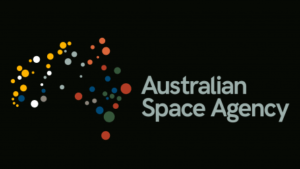
Want to learn more about space law in Australia? Visit our article on Australian space law.
Key features:
- The New Zealand space licensing regime does not charge fees for an application, or for holding a licence or permit.
- New Zealand currently recognises licences from certain jurisdictions as meeting their licence or permit requirements.
- Australia and New Zealand offer equivalent space licences and permits
Primary regulator:
The primary regulator of space activities in New Zealand is the NZ Space Agency.
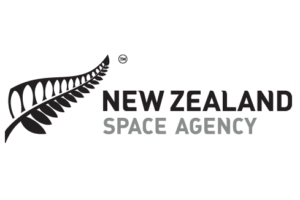
Want to learn more about space law in New Zealand? Visit our article on New Zealand space law.
Key features:
- The United States offers three different licences and permits: Launch/Re-entry Vehicles Specific Licence, Operator licence, Experimental Permits for Reusable Suborbital Rockets.
- The costs of launching activities in the United States depends on various factors, including: the launch vehicle used, size and destination of the payload and insurance requirements, among others.
- Licence holders are required to make a reciprocal waiver of claims with the relevant parties involved in launch or re-entry services under which each party agrees to be responsible for personal injury to, death of, or property damage or loss sustained by it or its own employees resulting from an activity carried out under the applicable licence.
- Space operators are subject to ongoing monitoring by the Federal Administration Authority to ensure compliance with licence conditions.
Government regulators:
The regulation of space activities in the United States is split between several federal government agencies:
- The Federal Aviation Administration (FAA)
- The Federal Communications Commission (FCC)
- The National Oceanographic and Atmospheric Administration (NOAA)
- The Department of Commerce
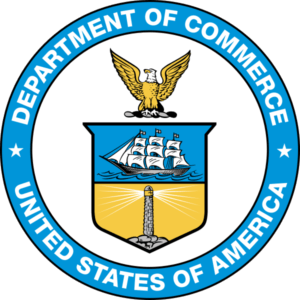
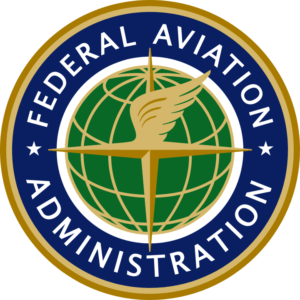
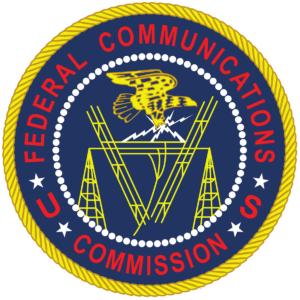
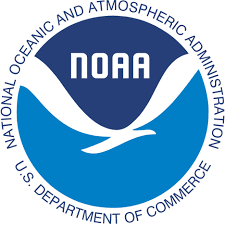
Want to learn more about space law in the United States? Visit our article on United States space law.
Key features:
- Separated ‘launch’ and ‘command’ phase, enabling ease in apportionment of liability in the case of damage.
- Four obtainable licences in addition to case-by-case authorisation, with lack of clarity surrounding costs.
- Clear insurance requirements and regulations regarding liability.
Primary regulator:
The primary regulator of space activities in France is Centre National d’Études Spatiales (CNES).

Want to learn more about space law in France? Visit our article on French space law.
Key features:
- Launches are conducted through the Indian government, and there is an established commercial framework with government owned launch provider ‘Antrix’.
- Indian launch vehicles have flight heritage, having successfully launched hundreds of foreign space objects.
- There is a lack of legislation, leading to potential for discretion and uncertainty.
Primary regulator:
The primary regulator of space activities in India is the Indian Space Research Organisation.
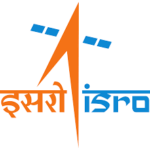
Want to learn more about space law in India? Visit our article on Indian space law.
Key features:
- Unlike other space-faring nations, China does not have comprehensive laws to regulate space activities.
- Licence holders are subject to continuing supervision and obligations under Chinese regulations.
- Insurance for space activities is compulsory under the Chinese regulatory regime.
Primary regulator:
The primary regulator of space activities in China is the State Administration for Science, Technology and Industry for National Defence (SASTIND).
Want to learn more about space law in China? Visit our article on Chinese space law.